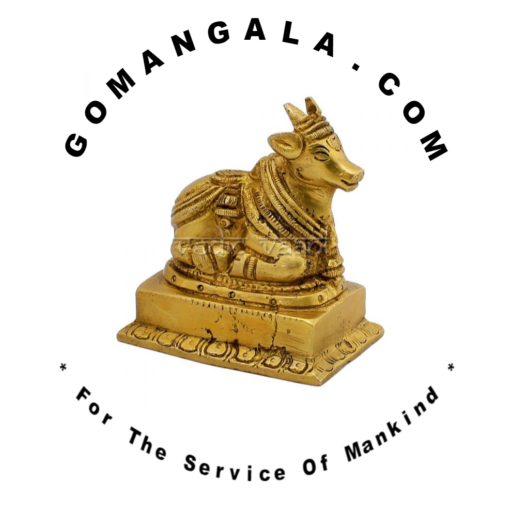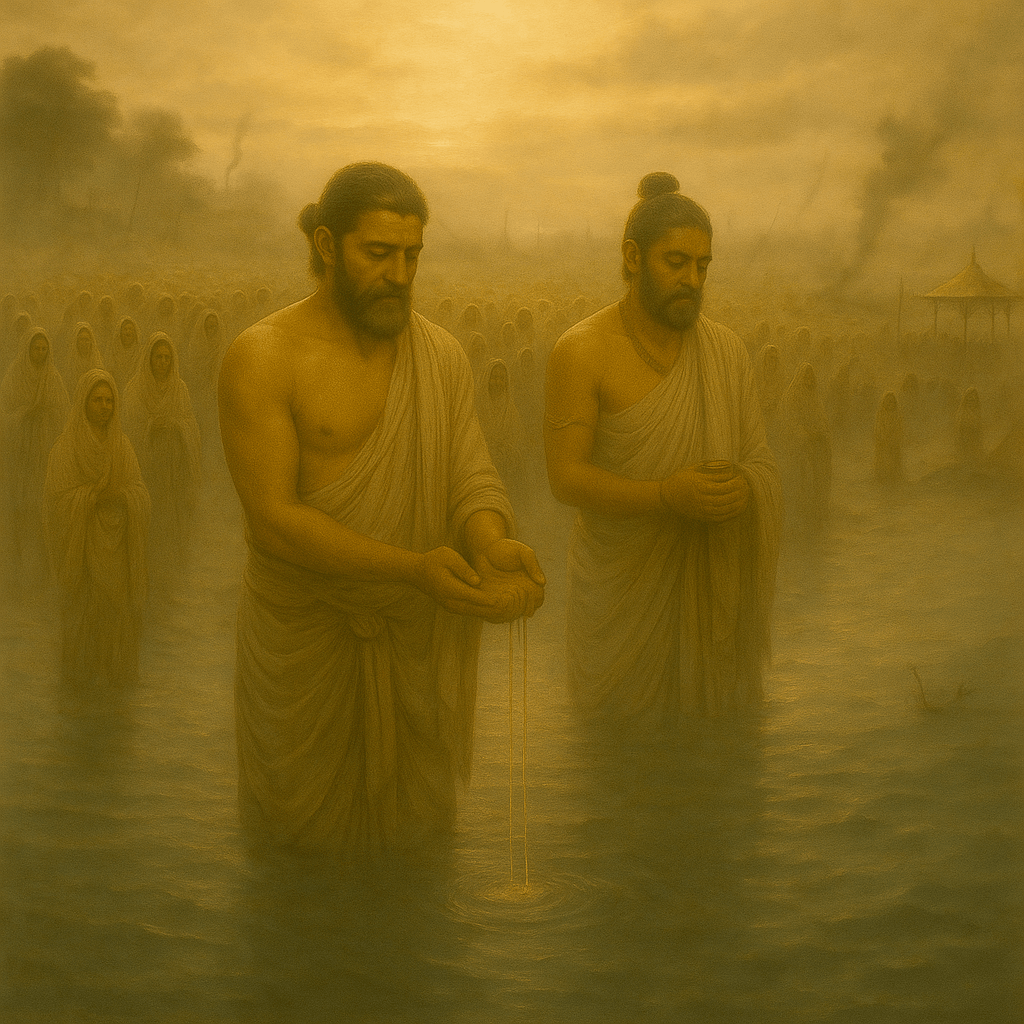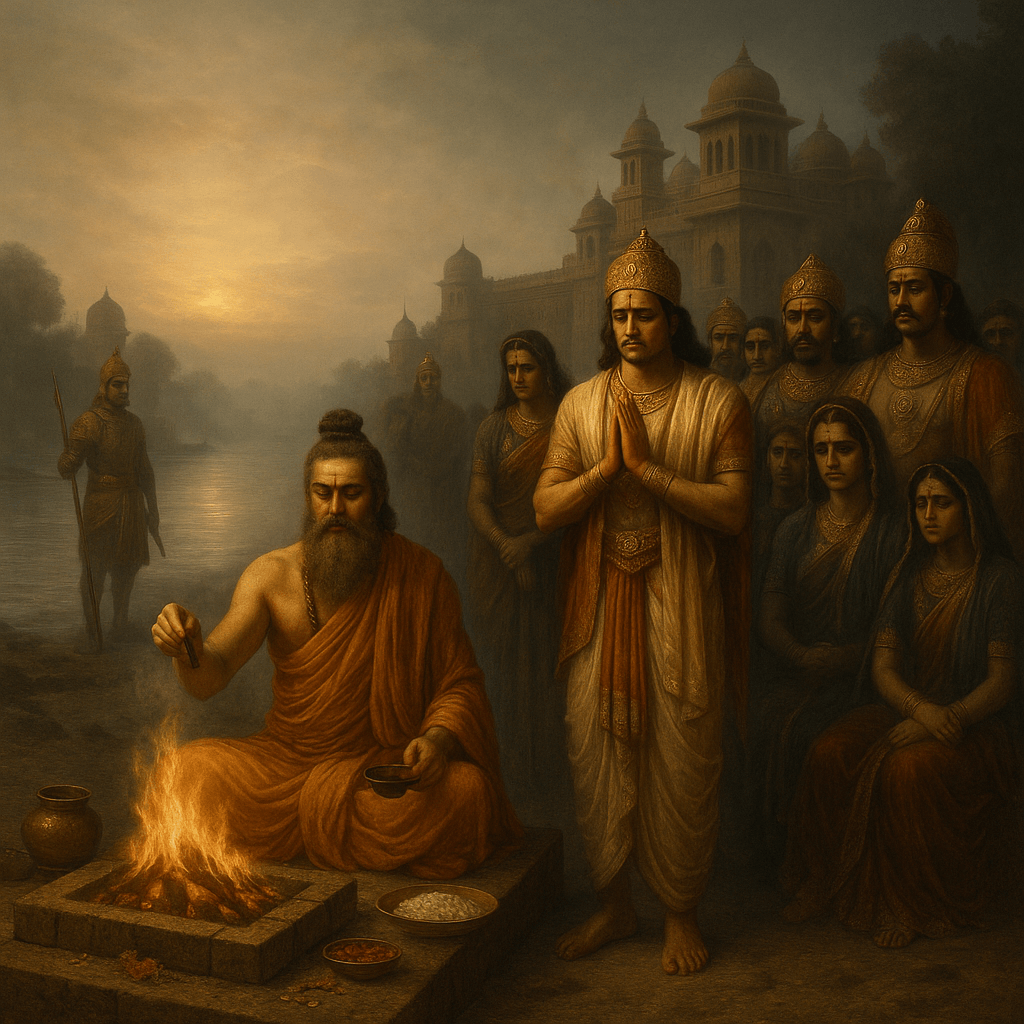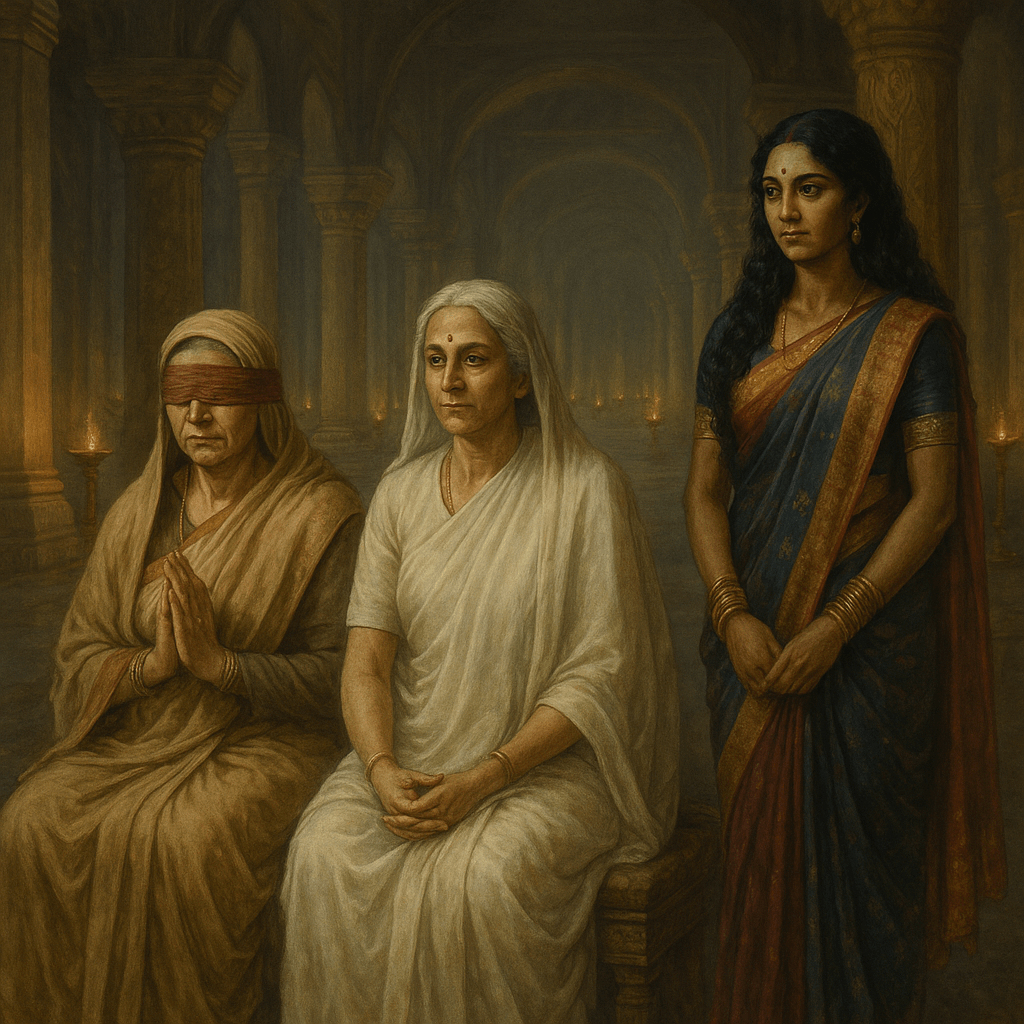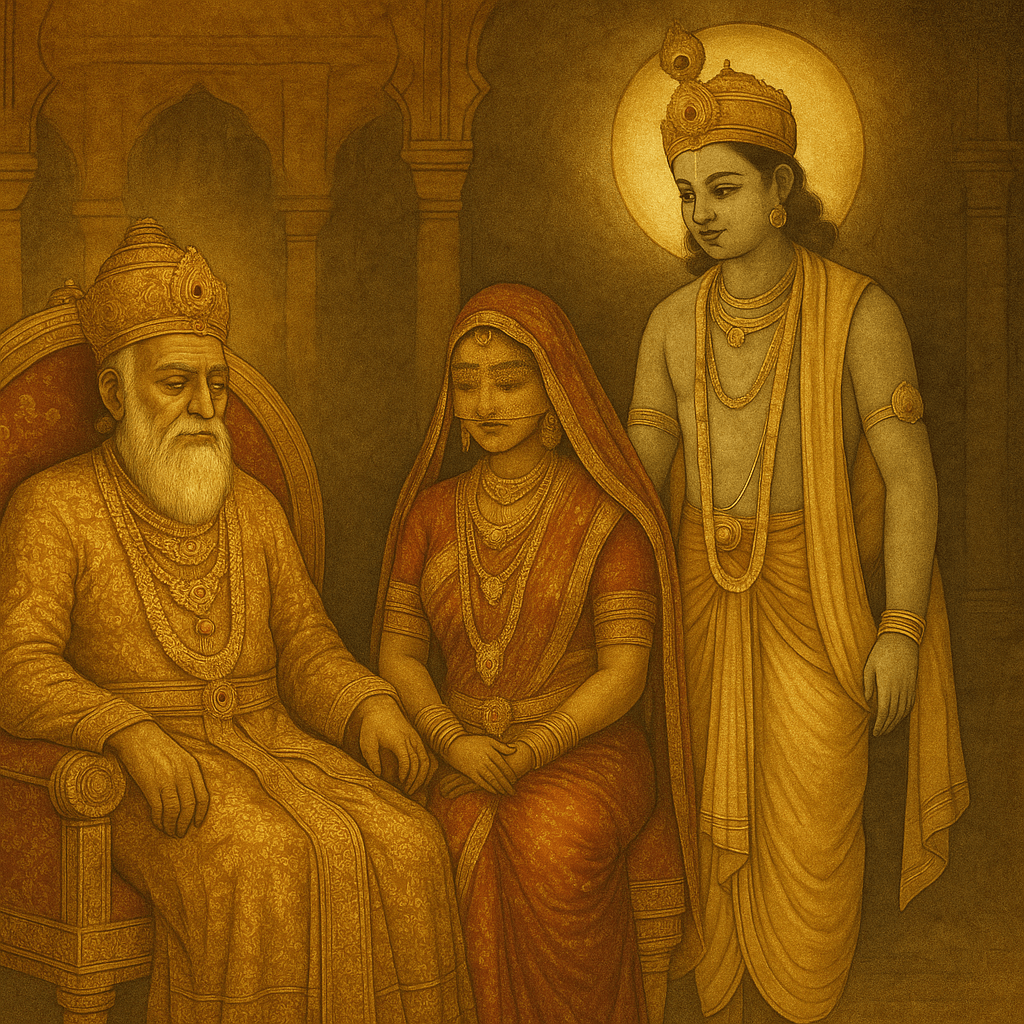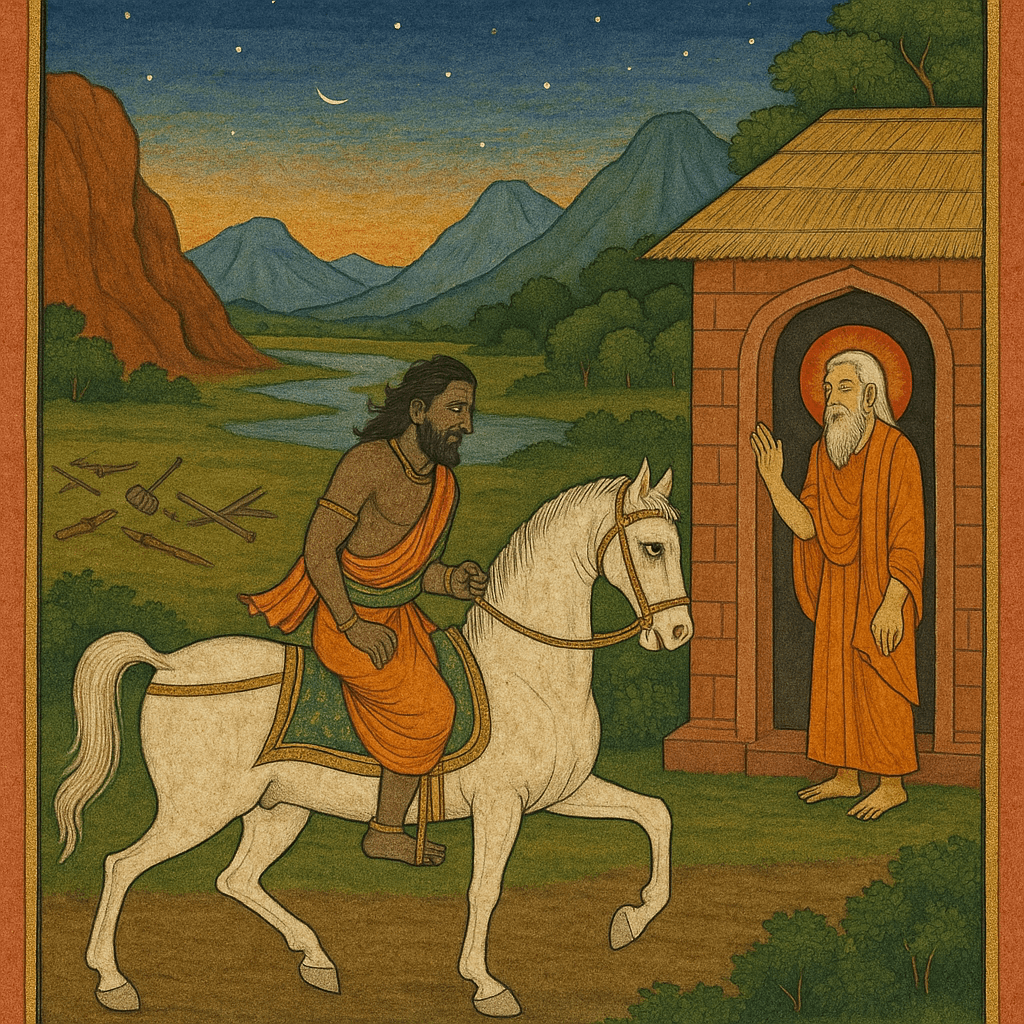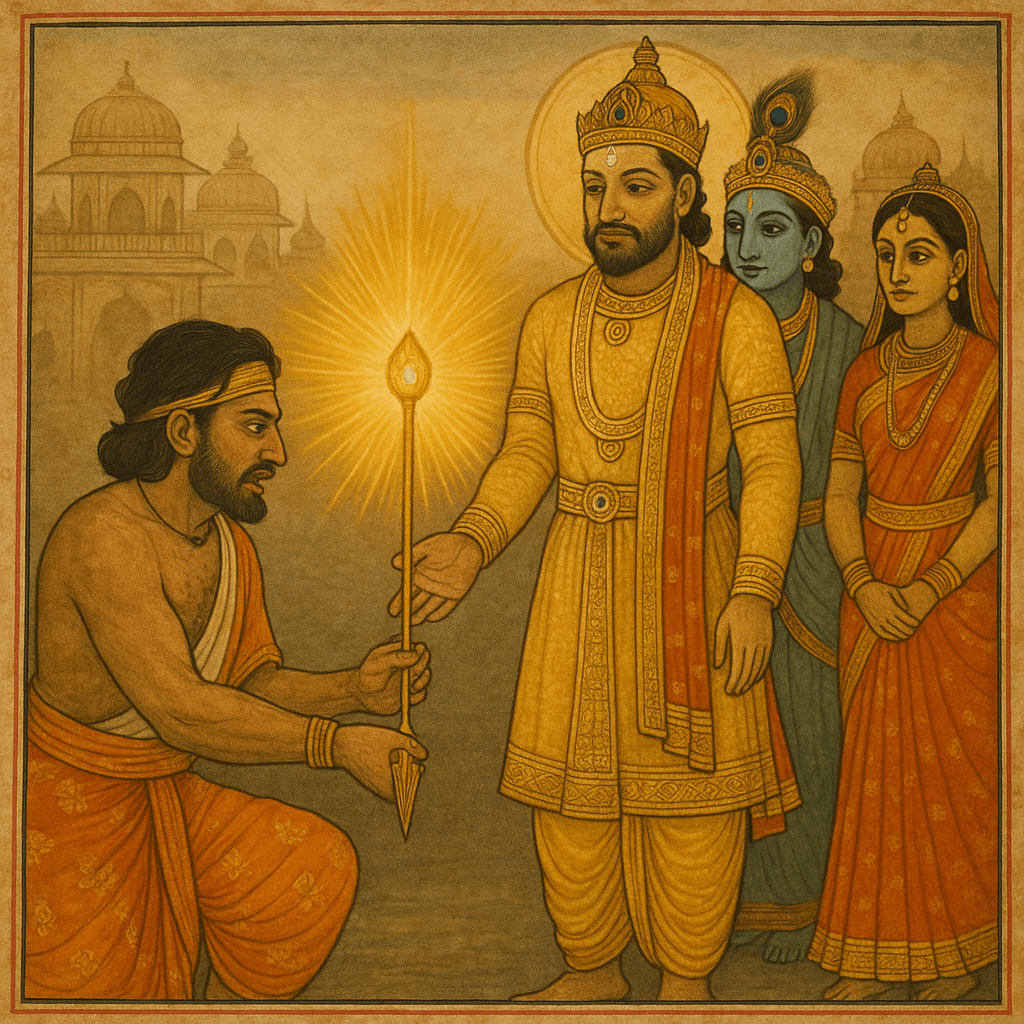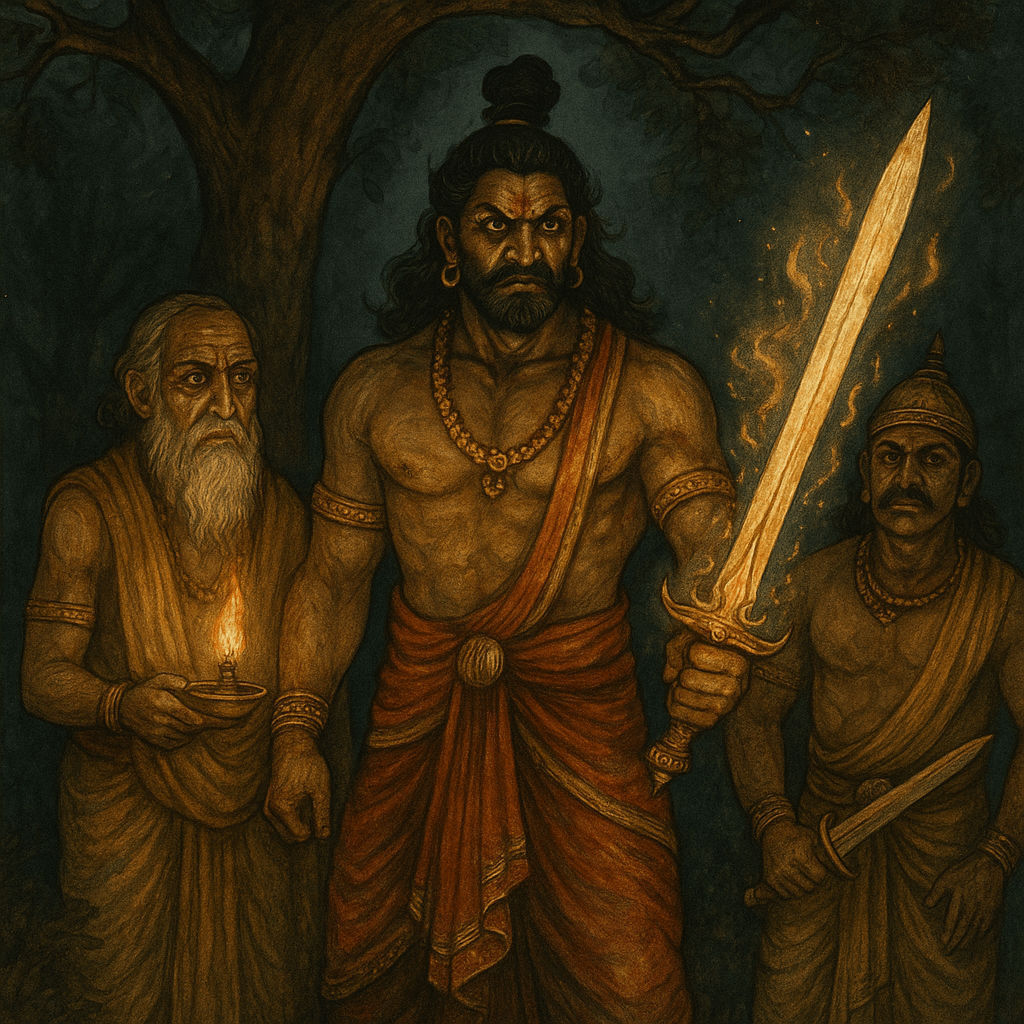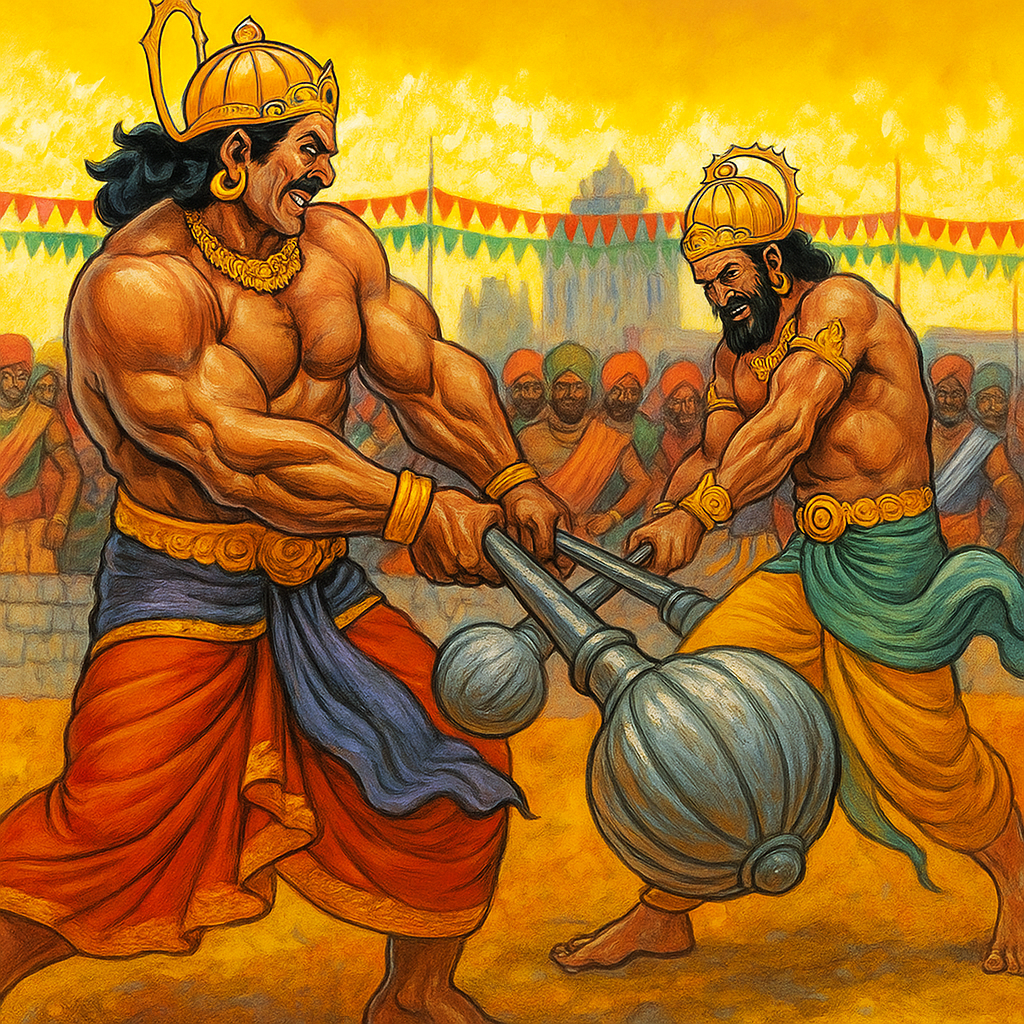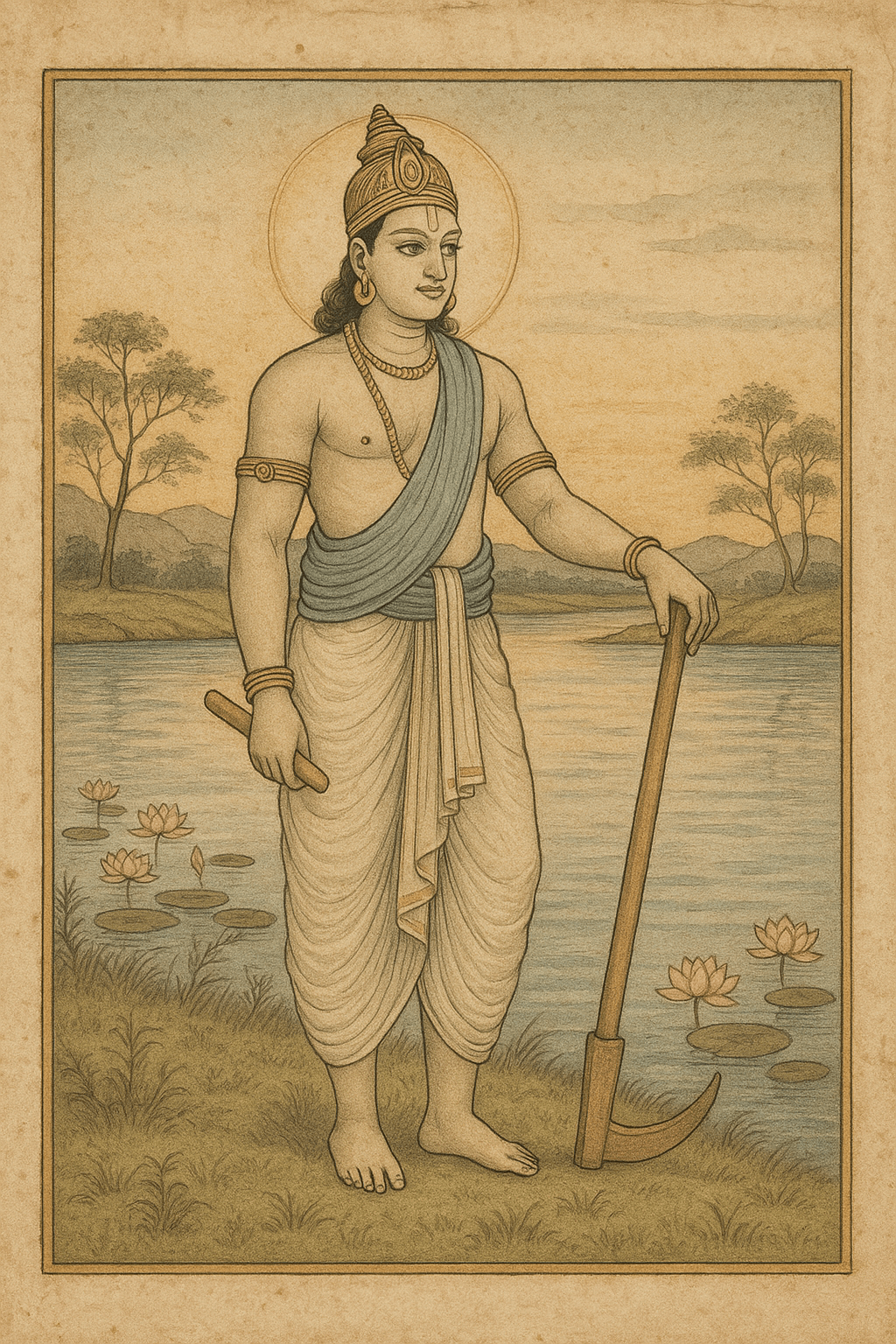Griha Parva is the eighty fifth Upa parva included in the eleventh Maha parva named as Stri parva. Vaishampayana continued narration to Janamejaya in reply to his queries as follows.
Why did Yudhishtira repent on the banks of River Bhagirathi?
Yudhishtira had repented and fallen unconscious on the banks of River Bhagirathi since he had thought he was resp[onsible for the bloodshed in the war. Karna was his elder brother but he was killed. Shalya was his uncle, but along with many friends and relatives, had been killed in the war.
Yudhishtira would become the emperor but many people lost their lives during the war. After sprinkling water, he recovered. Bhima and Arjuna had escorted him to uplift and sit on the ground. He was telling war was bad and he desired to go for penance, and that he would go to the forests again.
Who was Devasthana Muni and how did he pacify Yudhishtira?
Devasthana Muni was a silent Rishi. He was not talking when Duryodhana was ruling since he had no freedom of speech then. He disliked Duryodhana. He pacified Yudhishtira, by starting his speech. He loudly praised Yudhishtira.
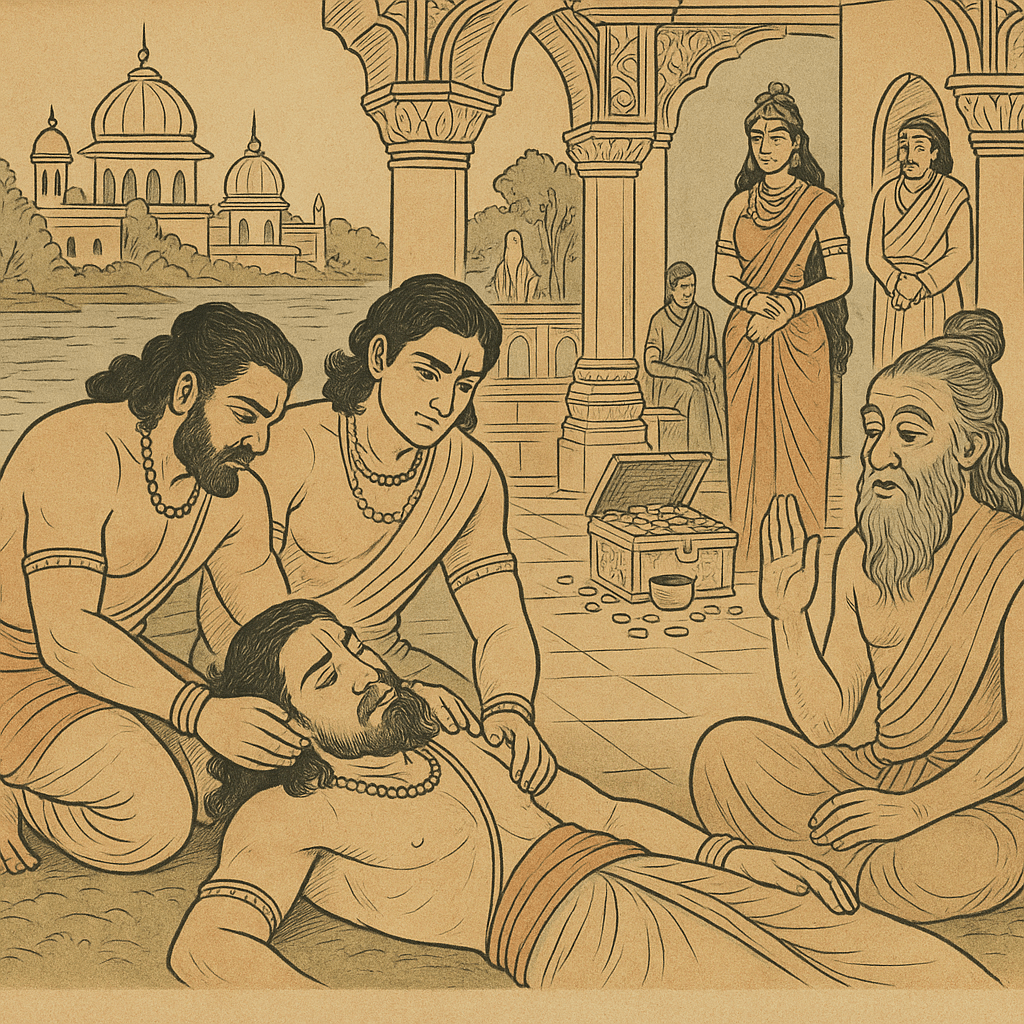
How did Devasthana Muni explain about wealth and Yajna to Yudhishtira?
Devasthana Muni explained to Yudhishtira about wealth and Yajna. When the king engages in peaceful administration, his sorrows would vanish. War and defense were unavoidable for the protection of the wealth of the kingdom, he consoled him.
